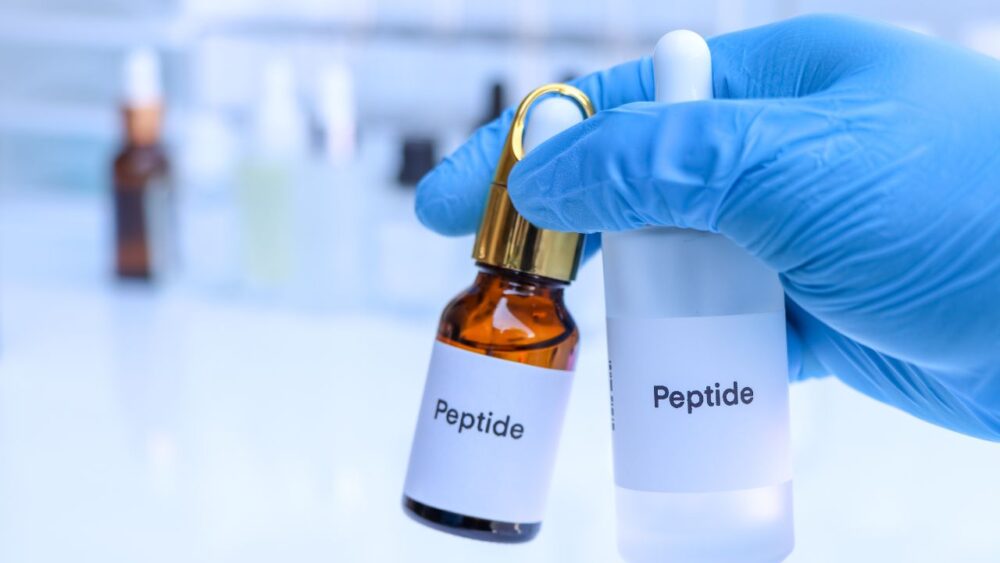Wellness influencers and celebrities are promoting unapproved peptide injections as miracle cures for aging, weight loss, and muscle building.
Online stores sell injectable vials for $300 to $600 each, while luxury clinics charge thousands in monthly membership fees.
These trendy compounds have never been extensively studied in humans. Medical experts warn that they could cause allergic reactions, metabolic problems, and other dangerous side effects.
Peptides are short chains of amino acids that perform essential functions in the body. While insulin and GLP-1 weight loss drugs are FDA-approved peptides, many circulating online have never undergone regulatory review.
Synthesized peptides aren’t new—doctors have prescribed them off-label for decades. But social media has turbocharged demand for obscure compounds like BPC-157, thymosin alpha, and GHK-Copper.
“These influencers are often advocating taking a stack of peptides each month, so it could be two, three, four different peptides,” said Dr. Eric Topol of Scripps Research Translational Institute. “This is really what I consider dangerous.”
Celebrity endorsements amplify the trend. Joe Rogan discusses using BPC-157 for injury recovery, while Jennifer Aniston serves as a paid spokesperson for a peptide supplement company.
“If any celebrity is using a peptide, and they’re saying this is what worked for me, then of course it’s going to be more mainstream and people are going to be looking into it,” said Kay Robins, who operates Pure Alchemy Wellness clinic near San Diego, according to AP News.
Most unproven peptides sold online are technically illegal. The FDA classifies injectable health substances as drugs requiring approval before sale.
The agency considers many peptides biologics, the most complicated drug type. It has added over two dozen peptides to a restricted list due to safety concerns.
Some companies market peptides as dietary supplements in pill or powder form. However, experts say that consuming peptides orally is unlikely to have an effect, as they dissolve in the gut.
Compounding pharmacies produce most injectable peptides sold in the United States. These state-regulated facilities face less scrutiny than those overseen by the FDA.
The pharmacies entered the peptide market after producing custom versions of blockbuster GLP-1 drugs during periods of shortage. When the FDA declared shortages ended, many continued production by adding ingredients like vitamin B.
“There had never been the monetary incentive to push the envelope of what is legally permissible with compounding before,” said Nathaniel Lacktman, a lawyer specializing in FDA issues. “The dollars weren’t there.”
Health Secretary Robert F. Kennedy Jr. has vowed to end “FDA’s war” on peptides. The compounds have gained popularity among followers of his “Make America Healthy Again” movement.
Kennedy’s associates include prominent peptide marketers like
“biohacker” Gary Brecka and functional medicine author Dr. Mark Hyman. Industry insiders expect Kennedy to roll back FDA restrictions on peptide production and sales.
As previously reported by The Dallas Express, President Donald Trump recently announced agreements with pharmaceutical giants Eli Lilly and Novo Nordisk to slash prices on popular GLP-1 weight-loss drugs.


